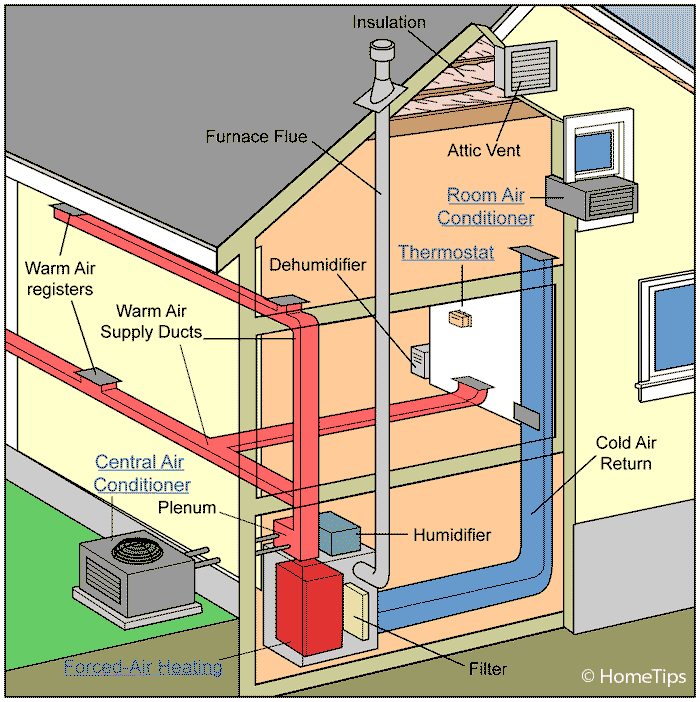
How Your Home's Heating & Cooling System Works HomeTips
1. Calculate the CFM for Each Room Most HVAC units are designed to have a 400 CFM of airflow for every 12000 BTU or 1 ton of cooling capacity and 12000 BTU divided by 400 CFM is 30. So, identify the BTU needed for each room and divide it by 30 to get the required CFM for the respective room.
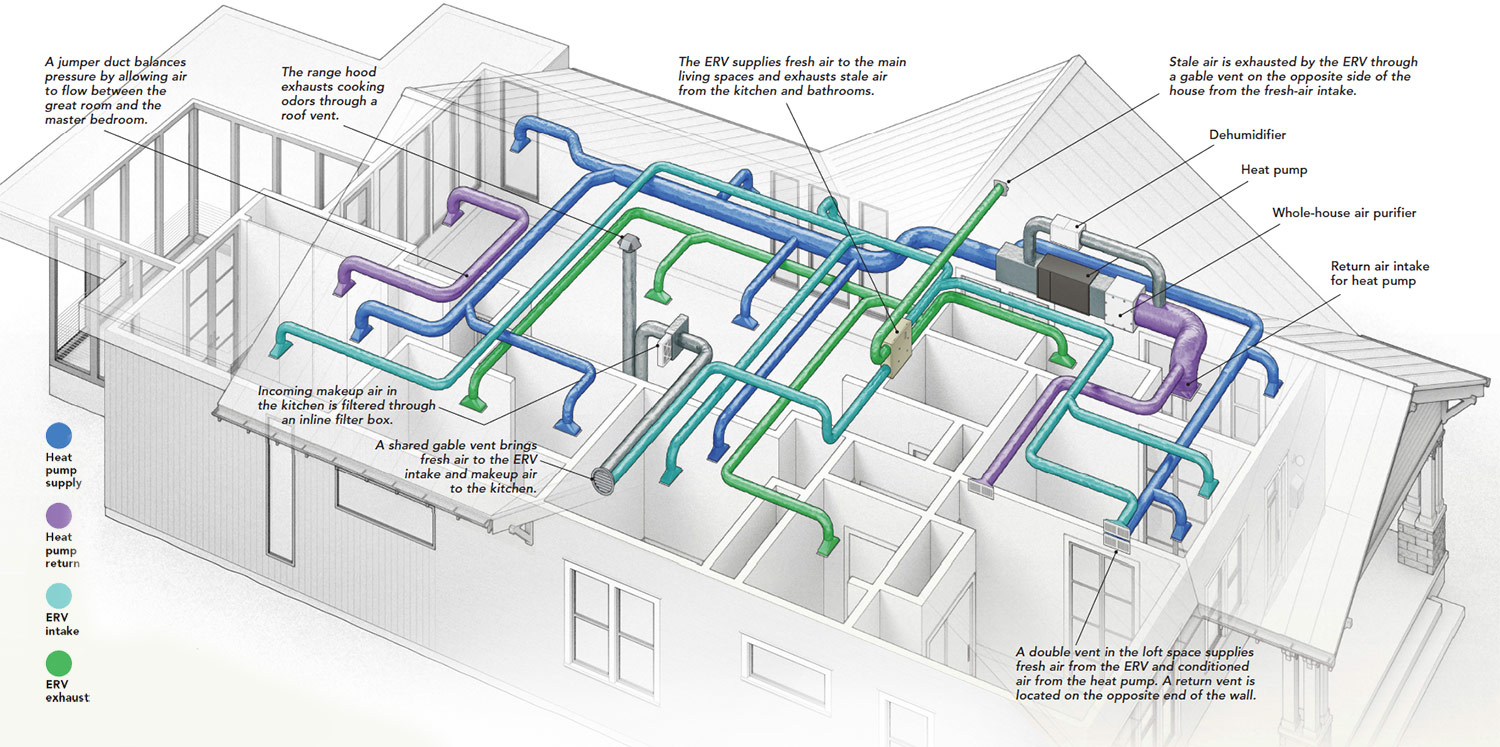
Designing an HVAC System for a Passive House Fine Homebuilding
Distribution System Design - We'll design the distribution system for your forced-air heating & cooling system to ensure each room is comfortable using Manuals D and Manual T. To learn more about these, see our page on the HVAC design protocols.

A complete guide to HVAC drawings and blueprints
Step-by-Step Designing an Energy-Efficient Residential HVAC System Unveiling the Secrets to a Perfectly Balanced Residential HVAC System Design Welcome to the ultimate guide to optimizing your residential HVAC system design.

Heating Systems Explained Everything You Need to Know HVAC Solvers
Four-part series conducted over four days online for beginner HVAC Contractors. This class introduces proper residential system design overview & installation procedures based on the "ACCA Standard 5 - Quality Installation" manual. Covers real-world applications for a complete and professional installation to include the following topics (2.
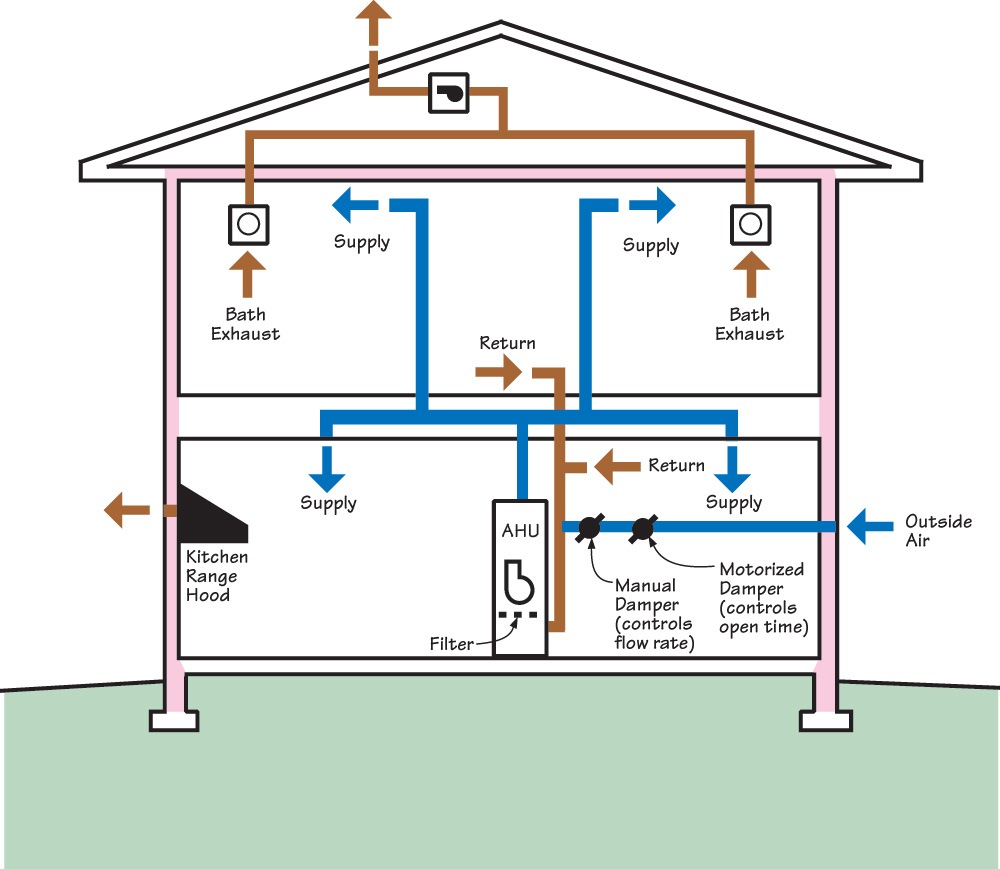
A complete HVAC system includes ducted returns Building America Solution Center
Offering real-world applications in addition to theoretical calculations and analytical procedures, Air-Conditioning System Design Manual, Third Edition, bridges the gap between theory and practice in the design of HVAC&R systems.. This chapter deals with applications of thermal and acoustical insulation for mechanical systems in residential.

This simple diagram shows you how your HVAC system's ductwork connects, and how it functions to
Requirements & Resources for HVAC Designers. For a home or apartment to be ENERGY STAR certified, several key design tasks must be completed by an HVAC designer, including designing a whole-house ventilation system, calculating room-by-room heating and cooling loads, selecting heating and cooling equipment using those loads, and designing a duct system for the selected equipment.

6 Basic HVAC System Terms Every Adjuster Should Know HVAC Investigators
Residential HVAC Design for Quality Installation Learn to design quality HVAC systems using Manual J and Manual D, and prove it with an ACCA certificate! The HVAC Quality Installation (QI) standard requires an initial system design based on correct procedures developed by ACCA.

How Does An HVAC System Work? Zone Home Solutions
Fri 2nd Apr, 2021 | LeggettInc | Heating & Cooling Designing Isn't Just for the Fashion Industry The design of your heating and cooling systems is just as important as the design of your favorite clothing. Without a proper eye for HVAC design, your heating and cooling equipment wouldn't fit quite right, and wouldn't be as efficient as it could be.
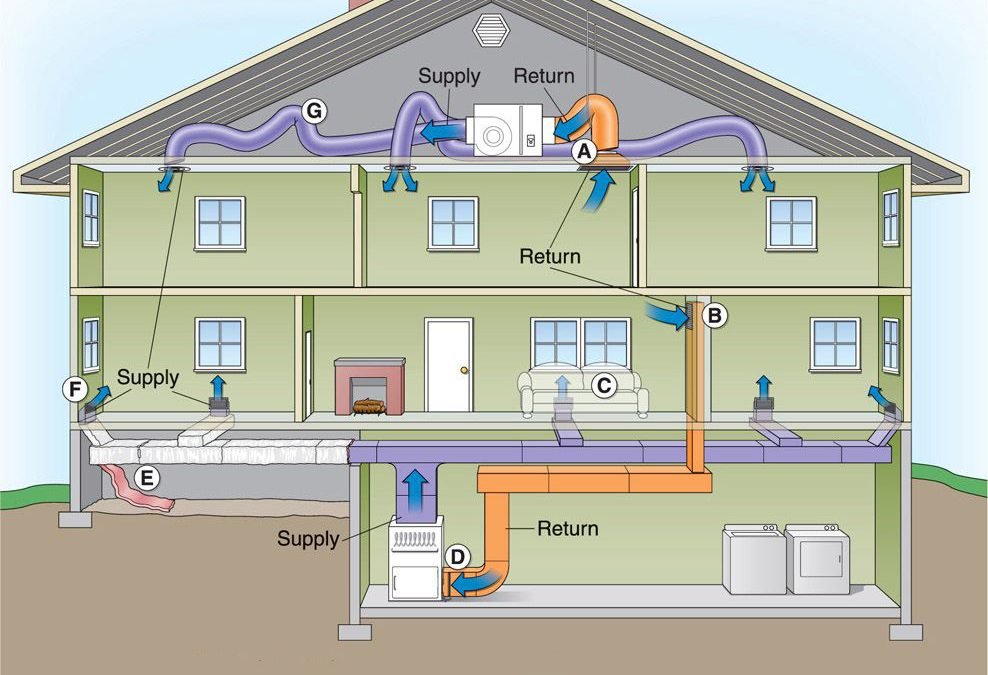
Why Add A Central Air Conditioning System To Your Furnace Purchase?
Architect and Architectural Photographer, Asif Salman has been globally recognized for his exceptional work. Named one of the "25 Emerging Architectural Photographers" by ArchDaily in 2021, and among the "100 Most Inspiring Architecture Photographers" by Loop Magazine in 2022, he is a leading figure in the field.
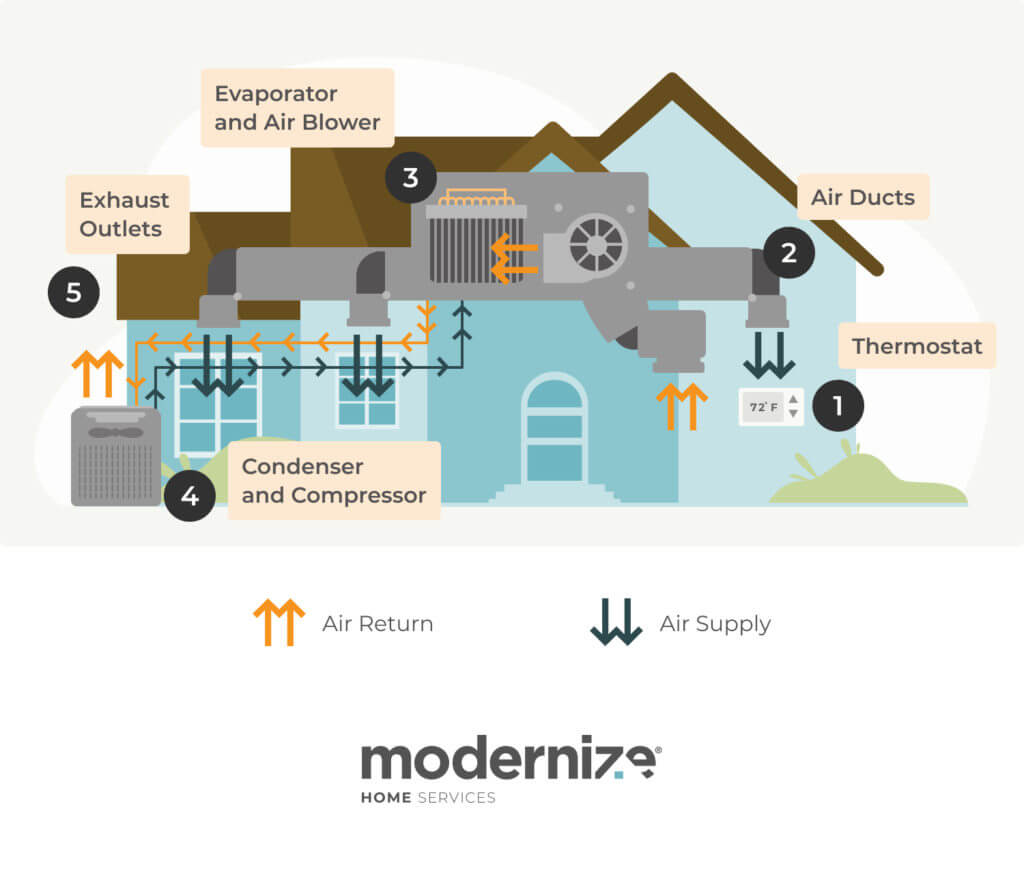
Types of HVAC Systems HVAC Buying Guide 2023 Modernize
Learn all the basics of HVAC ductwork sizing and ductwork design. Along with the basics of HVAC ductwork, this HVAC training will also help to educate you on.

Residential Master AC and Heat
This article defines the characteristics of a perfect HVAC system for both single-zone single-family residential and multi-zone residential, commercial and institutional applications.
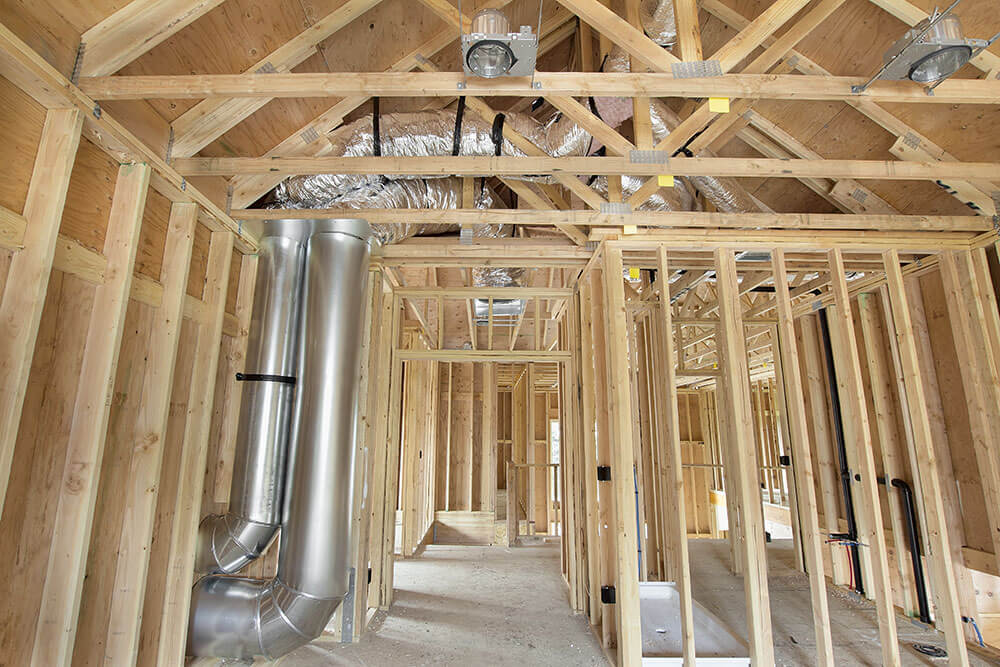
HVAC Ductwork Design for a More Efficient Home
How to design a Residential HVAC system? Some necessary steps will help you to design a sound HVAC system for your house. Many tools can help you to design an HVAC system, such as HVAC CAD. Arrange Components for residential HAVC system: First of all, arrange the necessary components for your residential HAVC system.
:no_upscale()/cdn.vox-cdn.com/uploads/chorus_asset/file/19521222/ducts.jpg)
Central Air Conditioning Systems A Guide to Costs & Types This Old House
1. Provide a fundamental understanding on the basics of what it takes to To design a mechanical system that can add (heating) or remove (cooling) heat energy at a rate (BTUs per hour) that will allow the home's indoor environment to achieve the design conditions.
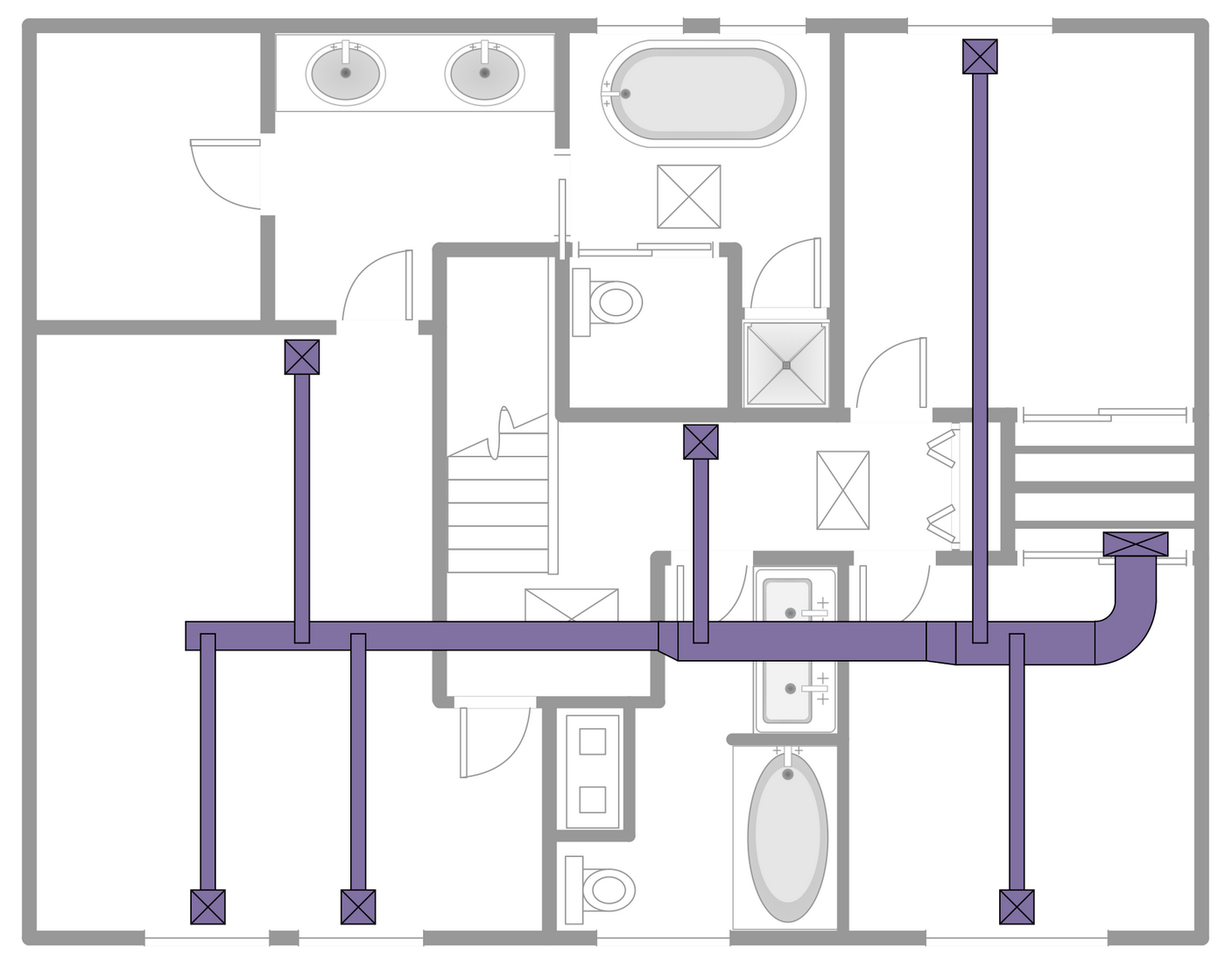
HVAC Plans Solution
The principles of HVAC design include the basic theory of system operation and the factors that determine the size and capacity of the equipment installed in the system. Once you have an understanding of the basics, you'll be given information concerning the different types of air conditioning systems.

SAMPLE RESIDENTIAL hvac layout drawing Google Search Hvac design, Residential hvac, Hvac diy
The Benefits of an Efficient Residential HVAC System. Investing in an efficient residential HVAC system offers numerous benefits for homeowners, both in terms of comfort and savings. Here are some key advantages: Energy Cost Savings: An efficient HVAC system reduces energy consumption, resulting in lower utility bills. By selecting the right.

Introduction to HVAC System
The following steps should be followed in the design and installation of the HVAC system to ensure efficiency and comfort (for details, see Appendix 1): Determine room-by-room loads and air-flows using ACCA Manual J calculation procedures (or substantially equivalent). Layout duct system on floor plan, accounting for the direction of joists.